
East Falls Forward’s general meeting for April shed light on why Redeemer would not be developed as a community space, as many wished. Plus, why Philadelphia is spearheading efforts to banish parking requirements for neighborhood zoning — are we on board with this or what?
Aside from the controversial Playground Group’s holding its first meeting before EFF’s meeting, the most important take-away from last month’s general assembly, to me, was Carolyn Sutton‘s thoughtful answer to new homeowner Noah Accorsi’s very reasonable question:
Why are we building new residential on the Redeemer Church property when we have plenty of homes here already that could be rehabbed? Why not create something the whole community can use?
Carolyn explained that the church & daycare properties had been empty since 2010, with no buyers. In fact, the community expressed they’d prefer a commercial or public use for Redeemer, so when HOW first purchased the property, developer Gary Jonas tried to find a business at least for the first floor but was unable.
Carolyn stressed that the property is currently zoned “RSA-5” for high-density residential, which means that if the developer wants to, he can tear down the church and build 20 homes on the site. By right — no community input necessary. Yeep.
Fortunately, HOW’s jam is renovating historic structures, but if we don’t let him build for the profit he requires, he will move on. And perhaps a not-so-historically-minded builder will make us all very sorry to have been so difficult…
Carolyn agrees with Noah, though: ideally, spaces like Redeemer should be repurposed for the whole community to enjoy. But there’s not enough “community” here to support a thriving business corridor — yet. Redeemer’s renovation into new residences, while perhaps not ideal for our neighborhood, is a step towards creating more amenities and saving more history moving forward.
One way to preserve our unique character unfortunately also fails to preserve a cherished convenience: eliminating required parking minimums.
BOOM!!! Explosive suggestion in these parts!
Our community council president considers many areas in East Falls “ground zero for parking” (04:52), and a neighbor on Stanton street has complained at zoning meetings that Bridget’s Lofts has “completely destroyed her quality of life” (00:45) due to parking stress. Seems they’d like one-for-one parking minimums: a car for every new living unit constructed.
Currently, though, Philadelphia is leading the way in loosening and even eliminating parking requirements. At last month’s budget meeting, Planning Commission director Gary Jastrzab promoted “a bit of a culture change” with respect to parking and the expectation of parking space, in an effort to create a more livable, sustainable city:
“There are an increasing number of options for people to live in the city and not necessarily need to own a car. Bike share is one. Car sharing is a real opportunity.”
But Philly’s own Council president Darrell Clarke strongly disagreed, “You can have some theoretical approach. The reality is that these people who are moving into these neighborhoods have cars. This is not reality-based, what you’re saying.”
He’s wrong. Recent studies show Americans are leaving cars behind — the percentage of us holding drivers licenses has plummeted over the last decades, especially among the young. And now 48 percent of us say they’d choose to live in a walkable urban area over the suburbs — a number that’s expected to grow to include entirely car-free cities in the foreseeable future.
What’s our local pro-“No-Parking-Minimums” contingent say? And how do they even exist, anyway — who doesn’t like parking?! Why on earth would neighbors fight to keep trees when that means sacrificing convenient parking near their own homes?
For Carolyn, the issue’s simple: greenspace is crucial for storm water management, and adds an undeniable charm to the neighborhood. Plus, she’s been watching the streets around Redeemer where she lives (without a driveway or garage), and feels there is easily room for drivers from the nine new apartments being built in the church.
And parking is cyclical, she points out in the video above (from EF Zoning meeting 4-20/16). Folks who come home at night have plenty of street parking, but they have to move their cars by 7 am — not a problem for most commuters, and even for folks not leaving for work, new spots start opening up at 6 am where they could leave a car all day.
It’s not perfect, but it’s a trade-off. So is walking. Smart development requires community compromise & adaptability. Carolyn’s not alone in her preference for a people-centered neighborhood, as opposed to one focused on cars. Many neighbors who came out to last month’s zoning & EFF meetings spoke in favor of street parking for Redeemer’s apartments, and neighborhood banter on social media supports density & enterprise.
In addition to Philadelphia Magazine’s recent article ringing in a “multi-modal moment that’s going to change everything about how we get around,” PlanPhilly.com’s post Five Reasons Why Philly Shouldn’t Set Parking Minimums, outlines how parking minimums:
- Distort demand for parking Community requirements are often subjective & imprecise, based on perception or anecdotal evidence. Providing more parking encourages people to drive more, creating more demand for parking — an unsustainable cycle.
- Undermine public transit & pedestrian experience The more space we give to cars, the less dense & commercial our environment becomes. Public transportation is less viable at lower densities; design-wise, parking requirements breed ugly blocks of first-floor garages. Who wants to stroll through that?
- Discourage unique small-scale projects No one wants a cookie-cutter streetscape but building with 1-for-1 parking in urban areas requires developers to purchase & redesign big chunks of land. Not the environment that nourishes historic renovations.
- Clog ZBA procedings Developers appeal parking requirements, adding to project costs and overloading our already-swamped public office, slowing things down for everyone.
- Don’t reliably work anyway Think about it: each driveway curb cut means the loss of a public on-street parking space — at least. Three garages, each for a single car, could take four on-street parking spots. Or not. Design is everything, and local councils have been known to approve some really bad designs.
Tons of evidence supports these claims, and more. New conclusions may surprise you, follow these links for the latest research:
What happens when you get rid of minimum parking requirements in a downtown district while also adding 4,500 people to the downtown? Many would suggest that adding so many people in a short time while removing parking minimums would be bad for businesses because parking spaces would be tougher to find. Fargo, ND provides a compelling case study showing that downtown businesses can thrive under these circumstances.
Robust Growth and Development without Mandating Parking (Strongtowns.org, Feb 2015)
Besides stifling growth, another downside to parking minimums: cost to the Average Joe. When the new Whole Foods has to buy a whole city block for a parking garage to meet zoning requirements, they pass the cost right along to their customers.
So near neighbors who can’t afford cars, likely also can’t afford to patronize local stores:
Requiring all new buildings to provide ample off-street parking spreads the city over a larger area, increases cost, reduces density and makes cars the default way to travel. Parking requirements also undermine public transit, making life harder for people who are too poor to own a car.
How Parking Requirements Hurt the Poor (Washington Post, March 2016)
A better-planned, more environmentally protective and enjoyable community doesn’t just tend to thrive commercially — these neighborhoods can support a diverse mix of students, artists, seniors, parents, professionals from all walks of life.
Of course, economic exclusion isn’t a moral issue. If a community wants to live in an exclusive manner, God bless them. Let them do it through property ownership and development. Build a gated community. Buy up the land around it and develop it in such a way as to insulate the nirvana. But to use the force of law to restrict what neighbors can do with their property — that crosses a line.
Single Family Zoning Racist? Seattle Thinks So (PJMedia.com, July 2015)
No one wants to say it, but medium & high-density housing slants towards lower-income residents, who tend to be more diverse. Low-density, car-centric neighborhoods are BORING! We can do so much better here, without feeding into racial & cultural fears.
Who likes driving around looking for parking? But who wants to live in a wasteland of garages with living space on top? Car-centric urban planning has destroyed neighborhoods & business corridors. It’s created a petroleum-dependent generation besieged by obesity, depression, traffic accidents, and global warming. East Falls was once a thoroughly walkable city, and a lot of us believe it can be again.
Looking ahead towards Redeemer’s May 18th ZBA hearing, Carolyn’s hoping this’ll be the last historic renovation into apartments — next time a piece of our past sells, fingers crossed it becomes public space instead of private property.
And maybe in the future, instead of required parking spots, developers like HOW will give tenants bikes or transit passes instead of asphalt slots. Seattle is already doing this (!) and Portland’s not far behind. Perhaps Philly next?
DEVELOPING NEWS: Swelling community pushback spearheaded by a member of Redeemer’s former congregation with a dream for a community space — we’ll be following up on this action, and also reporting from HOW’s upcoming zoning hearing May 18th.




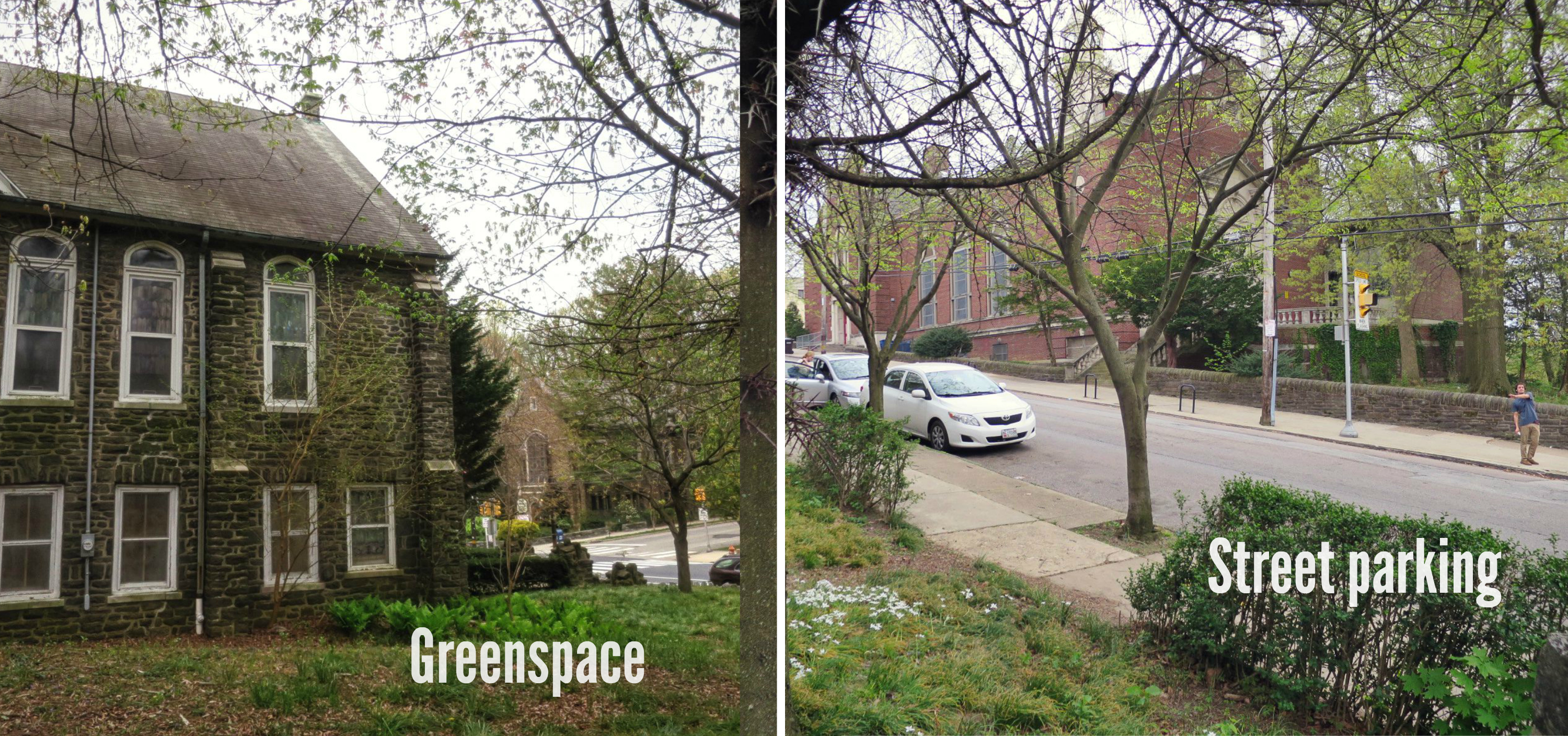
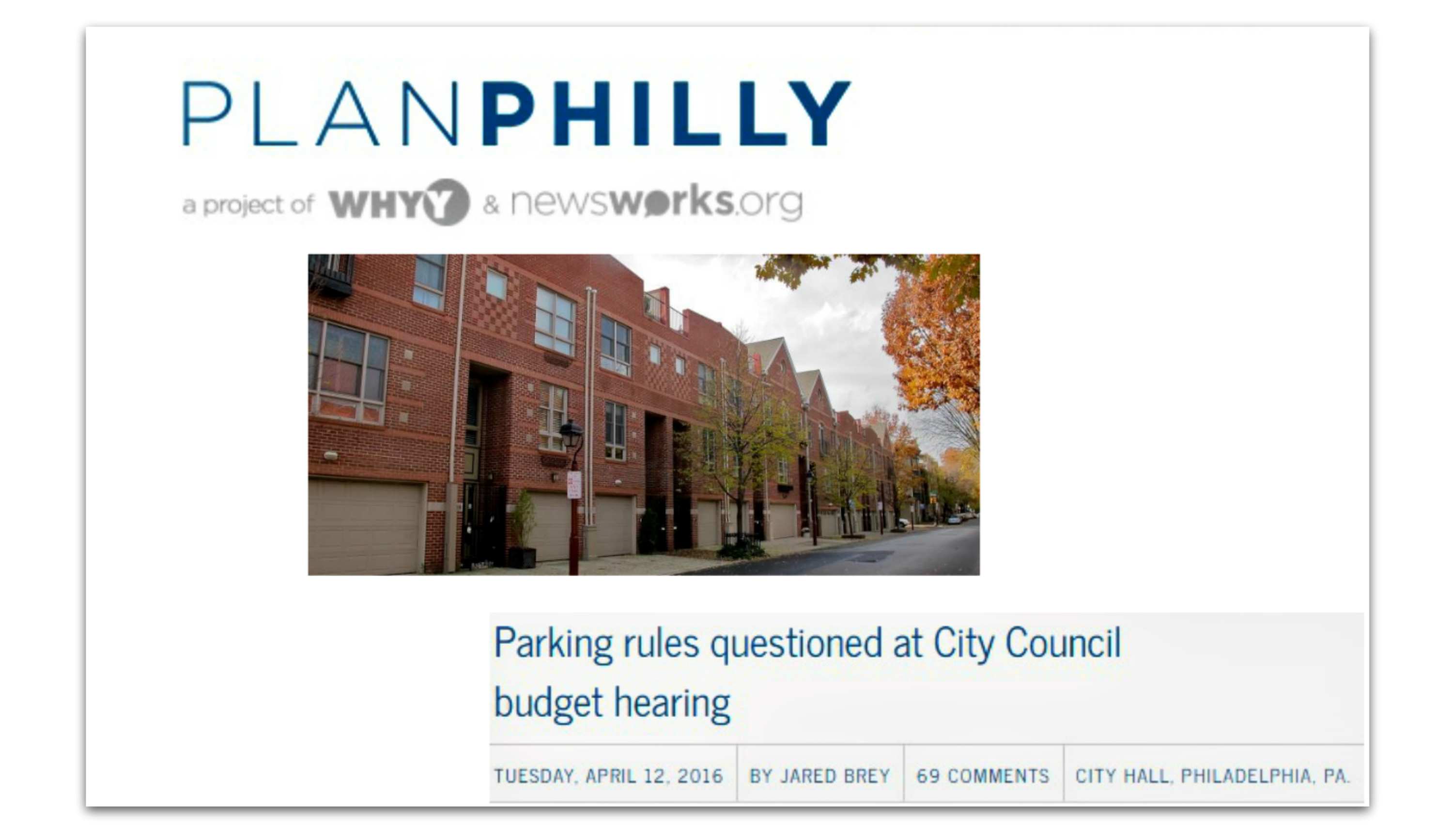

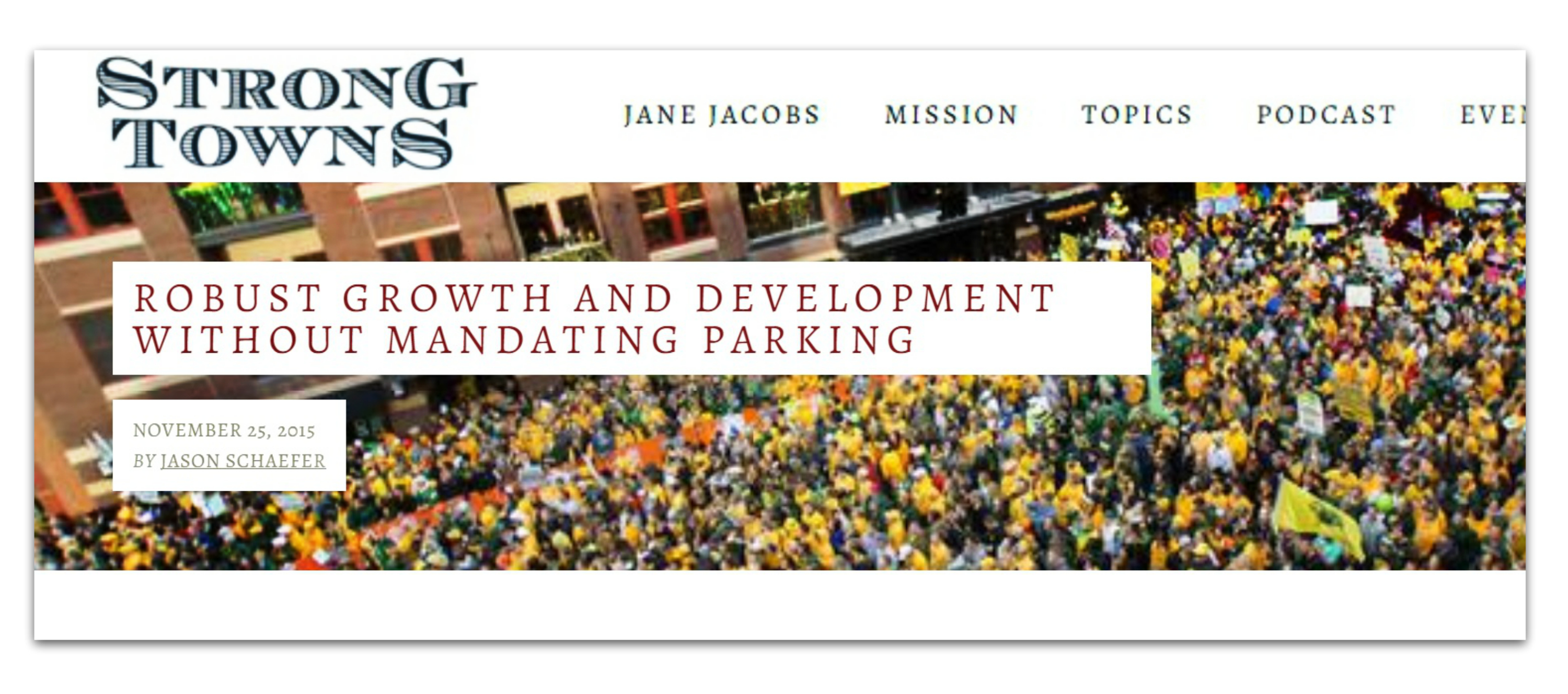
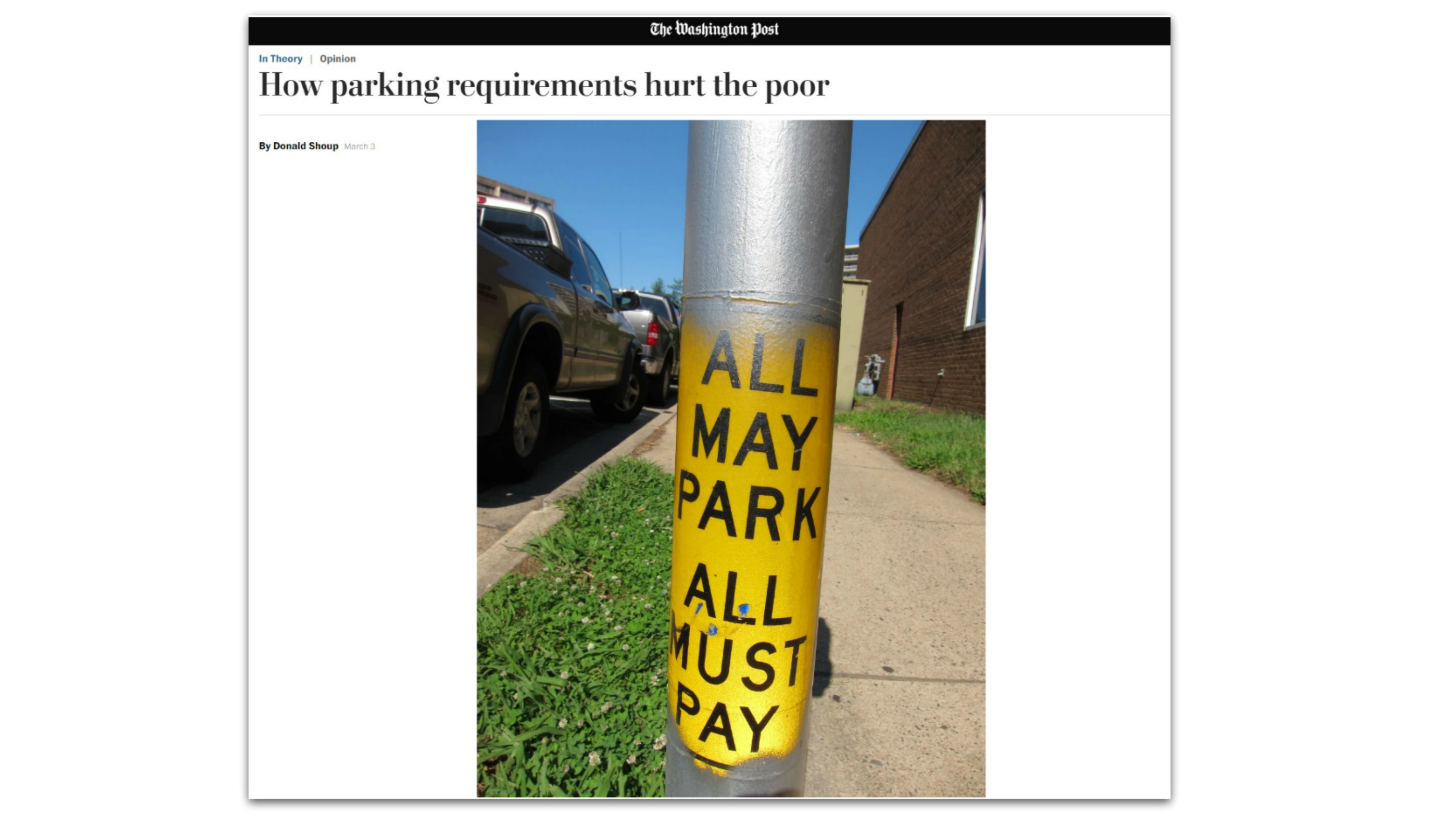

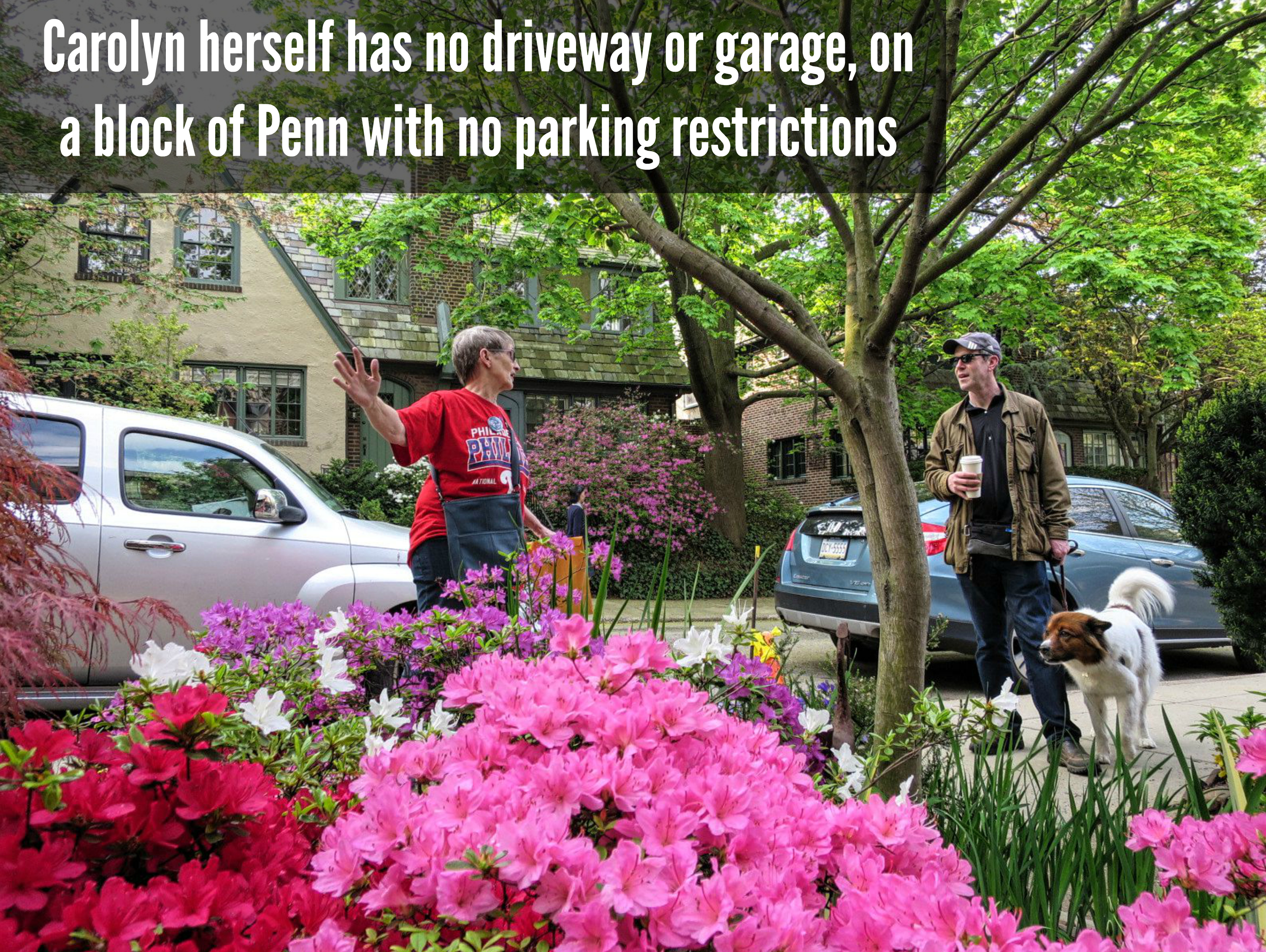

A parking situation “completely destroying my quality of life”? I don’t even think that qualifies as a first world problem.
Quote:
>>>”Why are we building new residential on the Redeemer Church property when we have plenty of homes here already that could be rehabbed? Why not create something the whole community can use? “<<<
"We" aren't building anything. We don't own the property, Gary Jonas does. He is building something, and is entitled by right to knock the church down and build high-density residential housing units without any variance whatsoever. And he ought to do exactly that if people don't stop breaking his balls. He's been more than reasonable in soliciting community input, and it's time to either grant or deny his (very modest) variance request with no more delay.
And as for Carolyn's claim that high-density tends toward low-income, this is not necessarily true. San Francisco and Washington DC are two extreme examples where this most certainly is not the case. Closer to home we have high-density neighborhoods such as Fishtown, Northern Liberties, Point Breeze, etc., where we see both high density and high incomes/housing prices.
The younger generation prefers to live in cities and are abandoning the suburbs in droves. If anything, we will continue to see higher prices and more housing density in the city while the inner-ring suburbs will increasingly resemble the banlieues of Paris. I'll leave it to the reader to decide if this is a good or bad thing, but it *is* a thing.
Good stuff Morgan! One quibble — Carolyn doesn’t claim high-density tends toward low income, it’s the Seattle Times, as mentioned in the link provided.
Oops….my bad
No bad! It’s just that most authors who write posts like this actually have some planning experience or education other than googling, so I thought I should clarify that I am deferring to the experts here and welcome all opposing (or otherwise) links/comments! Thanks for chiming in.